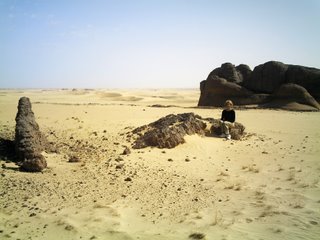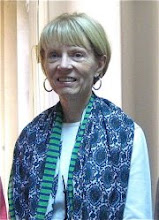
Born in 1807 in the vicinity of Mascara, his father’s side of the family traced descent from the family of the Prophet, as did other relatives. His father was an influential Sufi saint. Abdelkader showed an affinity for education at an early age, studying the Qur’an, the Arabic language, history, and geography. At the age of 18, he traveled in Tunisia, Egypt, while making the pilgrimage to Mecca. Upon the arrival of the French, he fought to defend Oran. The tribes of the west proclaimed him emir, with his father’s encouragement and backing, in 1832. In 1834, he signed a treaty with General Desmichels (at Oran, where I’m going October 24). Desmichels accorded him the title Commander of the Faithful (Emir El Mumineen), along with other designations. These names allowed him to project his influence as far west as Algiers. He organized his territory into khalifas (Mascara, Médéa, Miliana, Tlemcen) and called upon Muslims to fight the infidels. He succeeded in uniting a number of tribes, inflicting several defeats on the French, most notably at Tafna. By signing the treaty of Tafna on May 30, 1837, Emir Abdelkader obtained the acknowledgment of his authority over several territories, instituted aspects of a state with taxes, courts, education, and commercial activity, and reinforced his army. He built arms factories at Mascara, Médéa, and Miliana. His resistance served to provoke a crisis of consciousness among the Algerian people, contributing to insurrections of the Zaåtcha (1844), the Ouled Sidi El Sheik (1864), of El Mokrani, of Boumezreg, and Sheikh el Haddad (1871), Bouamama (1881), of Boumaza, of Boubaghla, and of Fathma N’Smour. The emir died in Damascus on May 26, 1883. He fought against the French for over 15 years, compelled the French to recognize his authority (at one time over as much as two-thirds of Algeria), endured imprisonment at Pau and Amboise in France, met with Louis Napoléon, and suffered multiple betrayals by the King of Morocco, which finally forced his capitulation to the French. I just read his memoirs, which are short and rambling, but as the testimonial of one of Algeria’s heroes in the fight against colonialism, an important primary source.
 Born in 1807 in the vicinity of Mascara, his father’s side of the family traced descent from the family of the Prophet, as did other relatives. His father was an influential Sufi saint. Abdelkader showed an affinity for education at an early age, studying the Qur’an, the Arabic language, history, and geography. At the age of 18, he traveled in Tunisia, Egypt, while making the pilgrimage to Mecca. Upon the arrival of the French, he fought to defend Oran. The tribes of the west proclaimed him emir, with his father’s encouragement and backing, in 1832. In 1834, he signed a treaty with General Desmichels (at Oran, where I’m going October 24). Desmichels accorded him the title Commander of the Faithful (Emir El Mumineen), along with other designations. These names allowed him to project his influence as far west as Algiers. He organized his territory into khalifas (Mascara, Médéa, Miliana, Tlemcen) and called upon Muslims to fight the infidels. He succeeded in uniting a number of tribes, inflicting several defeats on the French, most notably at Tafna. By signing the treaty of Tafna on May 30, 1837, Emir Abdelkader obtained the acknowledgment of his authority over several territories, instituted aspects of a state with taxes, courts, education, and commercial activity, and reinforced his army. He built arms factories at Mascara, Médéa, and Miliana. His resistance served to provoke a crisis of consciousness among the Algerian people, contributing to insurrections of the Zaåtcha (1844), the Ouled Sidi El Sheik (1864), of El Mokrani, of Boumezreg, and Sheikh el Haddad (1871), Bouamama (1881), of Boumaza, of Boubaghla, and of Fathma N’Smour. The emir died in Damascus on May 26, 1883. He fought against the French for over 15 years, compelled the French to recognize his authority (at one time over as much as two-thirds of Algeria), endured imprisonment at Pau and Amboise in France, met with Louis Napoléon, and suffered multiple betrayals by the King of Morocco, which finally forced his capitulation to the French. I just read his memoirs, which are short and rambling, but as the testimonial of one of Algeria’s heroes in the fight against colonialism, an important primary source.
Born in 1807 in the vicinity of Mascara, his father’s side of the family traced descent from the family of the Prophet, as did other relatives. His father was an influential Sufi saint. Abdelkader showed an affinity for education at an early age, studying the Qur’an, the Arabic language, history, and geography. At the age of 18, he traveled in Tunisia, Egypt, while making the pilgrimage to Mecca. Upon the arrival of the French, he fought to defend Oran. The tribes of the west proclaimed him emir, with his father’s encouragement and backing, in 1832. In 1834, he signed a treaty with General Desmichels (at Oran, where I’m going October 24). Desmichels accorded him the title Commander of the Faithful (Emir El Mumineen), along with other designations. These names allowed him to project his influence as far west as Algiers. He organized his territory into khalifas (Mascara, Médéa, Miliana, Tlemcen) and called upon Muslims to fight the infidels. He succeeded in uniting a number of tribes, inflicting several defeats on the French, most notably at Tafna. By signing the treaty of Tafna on May 30, 1837, Emir Abdelkader obtained the acknowledgment of his authority over several territories, instituted aspects of a state with taxes, courts, education, and commercial activity, and reinforced his army. He built arms factories at Mascara, Médéa, and Miliana. His resistance served to provoke a crisis of consciousness among the Algerian people, contributing to insurrections of the Zaåtcha (1844), the Ouled Sidi El Sheik (1864), of El Mokrani, of Boumezreg, and Sheikh el Haddad (1871), Bouamama (1881), of Boumaza, of Boubaghla, and of Fathma N’Smour. The emir died in Damascus on May 26, 1883. He fought against the French for over 15 years, compelled the French to recognize his authority (at one time over as much as two-thirds of Algeria), endured imprisonment at Pau and Amboise in France, met with Louis Napoléon, and suffered multiple betrayals by the King of Morocco, which finally forced his capitulation to the French. I just read his memoirs, which are short and rambling, but as the testimonial of one of Algeria’s heroes in the fight against colonialism, an important primary source.


0 Comments:
Post a Comment
<< Home